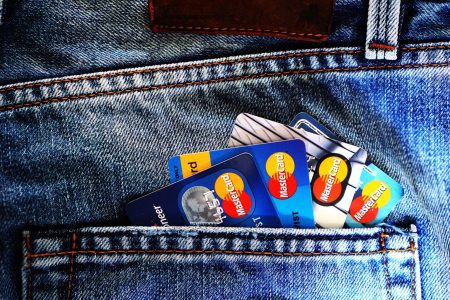Credit cards are a means of funding urgent expenses and can come in handy in desperate situations. There are different factors and terminologies associated with credit card use. A grace period for credit is one of these terminologies.
Let’s review what a grace period for credit is in Canada.
What is Grace Period?
The grace period is an interest-free period that you can benefit from when you purchase something with your credit card as long as you pay the total balance by the current month’s due date.
This means that if you pay the entire balance by the due date during the grace period, you won’t be charged interest on new purchases with your credit card.
In Canada, the grace period is usually 21 days after the end date of the period covered by your account statement (statement period). This grace period also applies if you have an outstanding balance from the previous month.
How Grace Period for Credit Works in Canada
To understand how a grace period works, let us use an analogy. So, assuming your statement period is from the 1st of April to the 30th of April, and you make a purchase with your credit card on the 12th of April, you will be given a 21-day grace (21st of May) to pay the entire balance of your statement to avoid being charged interest.
If you cannot make the complete payment, you will be charged interest from the date you made the purchase. Let’s see another example;
If you buy a bag worth CA$500 on the 6th of January and the due date on your statement period for payment is 31st of January. You were able to pay CA$350 by the end of your grace period (21st of February); you will be charged interest right from the 6th of January till the day of your payment due date.
Again, most financial institutions will begin charging interest on balance transfers and cash advances from the transaction date.
Whether you pay your total balance by the due date or not; the grace period may be beneficial or detrimental to you depending on the transaction. Sadly, in the case of the latter, there’s nothing you can do about it. This is because you had agreed to the credit card’s terms and conditions when you applied for it.
What follows the Grace Period?
If you’re unable to make full payments after your grace period ends, you will be charged interest at the regular purchase APR (Annual Percentage Rate) depending on your credit terms and conditions.
If your credit card offers an introductory 0% APR period, you will not be charged during this period. However, if your credit card comes with let’s say an 18.56% APR and your grace period is 21 days, any balances after the 21-day grace period will be charged 18.56% APR.
You could also pay a late fee on top of interest charges if you don’t make the minimum payment before the grace period ends.
Transactions not Covered under Grace Period
There are certain purchases and cash-like transactions that do not have a grace period. This means that as soon as you make any of these purchases, you will be charged interest. They include;
- Cash Advances
Cash advances are costly, and the best way to optimize the benefits is to pay as much balance as soon as you can. You can also consider other ways to get funding besides getting as a cash advance. Credit cards can be used to obtain a cash advance by taking out cash at an ATM or getting money from a financial institution.
There is no grace period for cash advances, and the interest rates are also very high compared to your regular purchases. Also, you may have to pay a fee each time you get a cash advance.
- Cash-like Transactions
Like cash advances, these cash-like transactions do not have a grace period. They include;
- Money Orders
These are types of prepaid payments you request from your financial institution. They are considered more reliable than personal cheques.
- Travelers Cheques
Travelers’ cheques are prepaid cheques in fixed amounts and allow the signatory to pay for goods and services.
Other cash-like transactions include gaming transactions like buying bets, casino gaming chips, and lottery tickets. As soon as you make any of these transactions, you will be charged interest, and the interest rate is usually higher than the regular purchase. You may also have to pay a fee like cash advances.
To ensure that the transactions you want to make will be treated as a regular purchase or a cash-like transaction, you can check your credit agreement or contact your financial institution.
Conclusion
Understanding your credit card grace period will help you manage your balance and avoid incurring interest. This way, you’ll be able to save on interest.
Remember, a grace period is a gap between the end of your credit card’s billing cycle and the due date of your payment. And during this period, most credit card issuers do not charge interest on new purchases made during the grace period.
Bear in mind that a grace period may or may not benefit you as a credit card owner even if you can pay your account’s total balance by the due date. Also, the grace period does not apply to purchases and transactions like cash advances and cash-like transactions.












